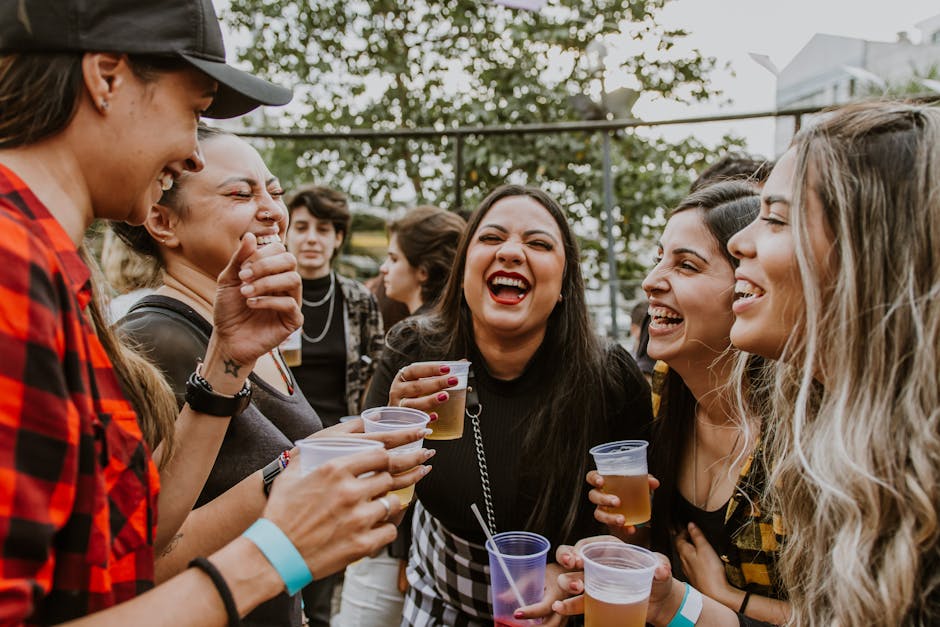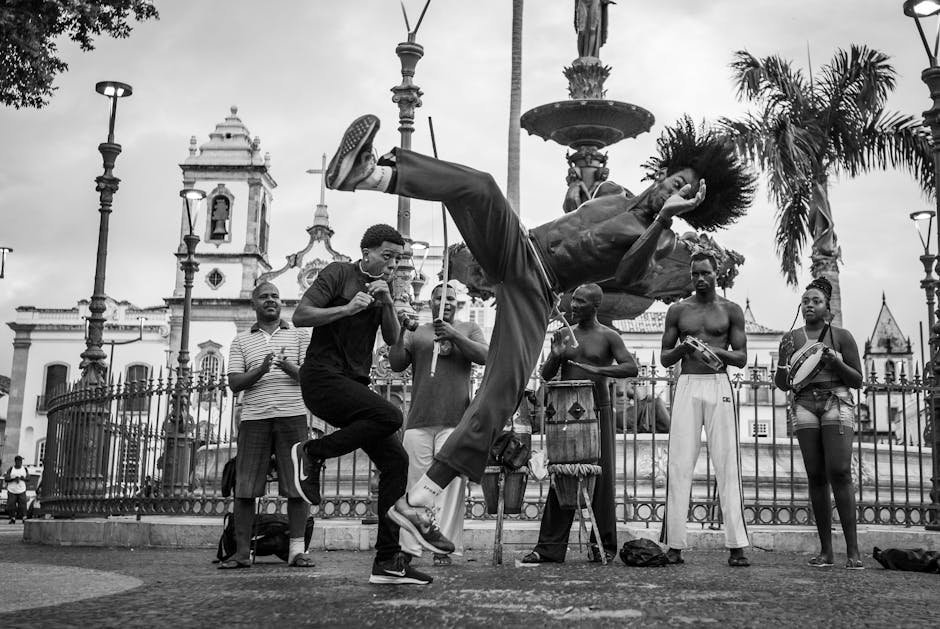- Why Bother with Slang? The Unwritten Rules of Communication
- Greetings and Everyday Chit-Chat
- Starting a Conversation with a Local Flavor
- Expressing Reactions and Opinions
- More Than Just "Good" or "Bad"
- Describing People and Situations
- Adding Color to Your Descriptions
- Food, Drinks, and Money: Essential Practical Phrases
- Ordering and Paying Like a Local
- Beyond the Basics: Cultural Gems and Everyday Sayings
- Phrases That Reflect the Brazilian Spirit
- A Few Tips for Your Slang Journey
- Embrace the Nuances!
Olá! planning a trip to brazil or thinking of making it your new home? You’re in for an incredible experience! Brazil is a vibrant tapestry of cultures, landscapes, and, of course, a rich, expressive language: brazilian portuguese. While formal Portuguese will get you by, truly connecting with locals and experiencing the country‘s heart and soul often requires a little more. That’s where slang comes in!
Brazilian slang isn’t just about cool words; it’s a gateway to understanding the everyday rhythm, humor, and warmth of the people. It can transform a polite interaction into a genuine connection, help you navigate common situations with ease, and even make you feel a little less like a tourist and a lot more like you belong. Don’t worry, you don’t need to become a slang expert overnight. A few key phrases will make a world of difference. So, let’s dive into some essential Brazilian slang that will equip you for survival and success, whether you’re just passing through or settling down!
Why Bother with Slang? The Unwritten Rules of Communication
Imagine visiting a new city in the US, and someone greets you with “What’s up?” instead of just “Hello.” It feels more friendly, right? The same principle applies in Brazil. Brazilians are incredibly warm and welcoming, and using a bit of their local lingo shows respect, effort, and a willingness to engage beyond the textbook. It’s a sign that you’re open to their culture, and they’ll often appreciate it immensely, responding with even more openness and helpfulness.
Furthermore, slang often fills gaps that formal language can’t. It conveys nuances, emotions, and specific cultural contexts. From expressing approval to navigating a tricky situation, these informal phrases are the grease in the wheels of daily Brazilian life. Getting comfortable with them means fewer misunderstandings and more authentic moments.

Ready to sound a little more Brazilian? Let’s get started with some essential phrases!
Greetings and Everyday Chit-Chat
Starting a Conversation with a Local Flavor
- E aí? (pronounced: eh-eye)
- What it means: Hey! / What’s up?
- How to use it: This is arguably the most common and versatile informal greeting. You can use it with friends, acquaintances, or even as a friendly way to catch a shopkeeper’s attention. It’s super casual, so avoid it in formal business settings.
- Example: “E aí, tudo bem?” (Hey, how are you?)
- Beleza? (pronounced: beh-LEH-za)
- What it means: All good? / Okay? / Cool?
- How to use it: Often used as a question or an affirmation. If someone asks “Tudo beleza?” you can respond with just “Beleza!” to say everything is fine. It literally means “beauty” but in slang, it’s about things being good.
- Example: “A gente se encontra mais tarde, beleza?” (We’ll meet later, okay?)
- Tranquilo (pronounced: tran-KEE-loh)
- What it means: Calm / Chilled / All good / No worries.
- How to use it: This is a fantastic word to express that everything is fine, relaxed, or that you’re not stressed. If someone asks if you’re okay, you can say “Tranquilo!”.
- Example: After a slight misunderstanding, you might say, “Tá tranquilo, não se preocupa.” (It’s all good, don’t worry.)
Expressing Reactions and Opinions
More Than Just “Good” or “Bad”
- Legal! (pronounced: leh-GAL)
- What it means: Cool! / Awesome! / Nice!
- How to use it: A universally loved word to express approval or that something is good. It’s perhaps one of the first slang words you’ll hear and pick up.
- Example: “Vamos para a praia?” “Legal!” (Shall we go to the beach? “Cool!”)
- Massa! (pronounced: MAH-sah)
- What it means: Awesome! / Great! (Especially common in the Northeast, but understood everywhere)
- How to use it: Similar to “legal,” but often with a bit more enthusiasm.
- Example: “O show foi massa demais!” (The concert was super awesome!)
- Pois é (pronounced: poyz EH)
- What it means: Indeed / That’s right / Exactly / Tell me about it.
- How to use it: A very common conversational filler and agreement phrase. It acknowledges what the other person has said and shows you’re listening.
- Example: “Está muito calor hoje.” “Pois é, demais!” (It’s very hot today. “Indeed, extremely!”)
- Nossa! (pronounced: NOH-sah)
- What it means: Wow! / Oh my! / Goodness!
- How to use it: An exclamation of surprise, shock, admiration, or sometimes even disappointment. It’s short for Nossa Senhora (Our Lady), but used secularly.
- Example: “Nossa, que vista linda!” (Wow, what a beautiful view!)
- Vixe! (pronounced: VEESH-ee)
- What it means: Oh dear! / Oops! / Uh-oh!
- How to use it: A common interjection, especially in the Northeast, to express mild surprise, concern, or when something didn’t go as planned.
- Example: “Vixe, esqueci a carteira em casa!” (Oh dear, I forgot my wallet at home!)
Describing People and Situations
Adding Color to Your Descriptions
- Gente boa (pronounced: JEN-chee BOH-ah)
- What it means: A good person / A nice person.
- How to use it: This is one of the highest compliments you can give someone in Brazil. It means they’re kind, friendly, and reliable.
- Example: “A Maria é uma gente boa, ela sempre ajuda.” (Maria is a good person, she always helps.)
- Cara / Mina (pronounced: KAH-rah / MEE-nah)
- What it means: Guy / Girl.
- How to use it: Informal terms for a man or a woman, similar to “dude” or “chick” in English, but generally less loaded. You can also use “cara” to mean “face” or “mate/friend.”
- Example: “Aquele cara é meu amigo.” (That guy is my friend.) / “Você viu aquela mina nova?” (Did you see that new girl?)
- Dar uma força (pronounced: dar OO-ma FOR-sah)
- What it means: To give a hand / To help out.
- How to use it: A polite and common way to ask for or offer help.
- Example: “Pode me dar uma força com essas malas?” (Can you give me a hand with these bags?)
- Ficar de boa (pronounced: fee-KAR jee BOH-ah)
- What it means: To chill out / To relax / To be in a good mood.
- How to use it: Used to describe a state of relaxation or being content.
- Example: “Depois da praia, a gente vai ficar de boa em casa.” (After the beach, we’re going to chill out at home.)
- Enrolado(a) (pronounced: en-ho-LAH-doh / en-ho-LAH-dah)
- What it means: Tied up / Busy / Complicated (for a situation).
- How to use it: Can describe a person who is currently busy or a situation that is complex or tangled.
- Example: “Não posso sair agora, estou muito enrolado com trabalho.” (I can’t go out now, I’m very tied up with work.) / “A situação está um pouco enrolada.” (The situation is a bit complicated.)

Food, Drinks, and Money: Essential Practical Phrases
Ordering and Paying Like a Local
- Um cafezinho (pronounced: oom kah-feh-ZEE-nyoh)
- What it means: A small coffee (but often just ‘a coffee’).
- How to use it: In Brazil, a regular coffee is usually a small, strong espresso. If you just ask for “um café,” you’ll likely get this. The diminutive “-zinho” adds a touch of affection.
- Example: “Garçom, um cafezinho, por favor.” (Waiter, a coffee, please.)
- Pra viagem (pronounced: pra vee-AH-jen)
- What it means: To go / Takeaway.
- How to use it: Perfect for when you want your food or drink packaged up to take with you.
- Example: “Posso ter esse pão de queijo pra viagem?” (Can I have this cheese bread to go?)
- Grana (pronounced: GRAH-nah)
- What it means: Money / Cash.
- How to use it: The most common slang word for money. It’s informal but widely accepted.
- Example: “Não tenho muita grana agora.” (I don’t have much money right now.)
- Churras (pronounced: shoo-HAS)
- What it means: Barbecue (short for Churrasco).
- How to use it: Brazilians love their barbecues, and calling it a “churras” is the casual way to refer to this beloved social event.
- Example: “Vamos fazer um churras no domingo?” (Shall we have a barbecue on Sunday?)
Beyond the Basics: Cultural Gems and Everyday Sayings
Phrases That Reflect the Brazilian Spirit
- Saudade (pronounced: sah-oo-DAH-jee)
- What it means: A deep, melancholic longing or yearning for something or someone absent, often with the knowledge that it may never return. It’s a feeling unique to Portuguese.
- How to use it: You feel saudade for people, places, or past times. It’s a beautiful, complex emotion.
- Example: “Estou com saudade da minha família.” (I miss my family / I have a longing for my family.)
- Fica à vontade (pronounced: FEE-kah ah von-TAH-jee)
- What it means: Make yourself at home / Feel free / Be at ease.
- How to use it: This is a warm invitation to relax and feel comfortable, whether you’re entering someone’s home or being offered a choice.
- Example: When visiting a friend: “Entra, fica à vontade!” (Come in, make yourself at home!)
- Bora! (pronounced: BOH-rah)
- What it means: Let’s go! / Come on!
- How to use it: A quick, enthusiastic way to suggest going somewhere or doing something together. It’s a contraction of “Vamos embora!”
- Example: “O sol está forte, bora pra praia!” (The sun is strong, let’s go to the beach!)
- Perrengue (pronounced: peh-HEN-gee)
- What it means: A difficult or inconvenient situation / A struggle.
- How to use it: Used to describe a moment of trouble, a problem, or a tricky spot.
- Example: “Passei por um perrengue para chegar aqui com o trânsito.” (I went through a struggle to get here with the traffic.)
A Few Tips for Your Slang Journey
Embrace the Nuances!
- Listen Actively: The best way to learn slang is to pay attention to how native speakers use it in different contexts. Brazilians are very expressive, and you’ll quickly pick up the tone and situations where these phrases fit best.
- Start Small: Don’t try to use every slang word you learn at once. Pick a few that resonate with you and try incorporating them into your daily interactions.
- Don’t Be Afraid to Ask: If you hear a word you don’t understand, don’t hesitate to ask a friendly local, “O que significa…?” (What does… mean?). They’ll often be delighted that you’re interested.
- Regional Variations: Brazil is a huge country, and just like in the US, slang can vary from one region to another. While the phrases above are widely understood, you might hear different local expressions in places like Bahia, Minas Gerais, or the South. Embrace these regional flavors!
- Context is Key: Slang often depends heavily on context and your relationship with the person you’re speaking to. When in doubt, err on the side of caution or use more formal language until you get a better feel for the situation.
Learning these essential Brazilian slang phrases isn’t just about vocabulary; it’s about opening a door to deeper cultural understanding and more meaningful interactions. It’s about showing that you’re not just visiting, but truly immersing yourself in the vibrant spirit of Brazil. So go ahead, try out an “E aí?” or a “Legal!” and watch the smiles light up around you. Boa sorte and have an amazing time!





